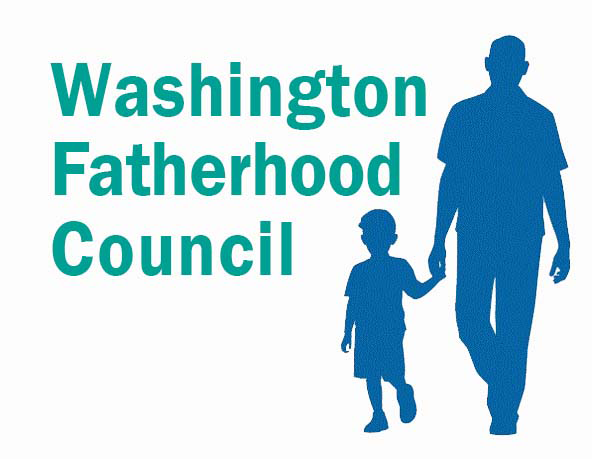Watch Our Video Series
To help prepare for the Summit, we partnered with Cultivate Learning at the University of Washington for a series of videos on the issues facing fathers today. We hope you’ll check out the videos, featuring conversations between Turner Cagle (Educator and Activist, Multicultural Child and Family Hope Center) and Mike Browne (Senior Director of Community Engagement, Cultivate Learning at UW). The first video on this page (left), and you can watch the complete series at these links:
Learning More About the Summit
The Washington Fatherhood Council's flagship event actually predates the Council itself. The Council was formed as a direct result of the first Washington State Fatherhood Summit in 2018, which was attended by 147 people from across the state.
The Washington Fatherhood Summit returns for its fourth iteration on May 24, with three half-days of presentations, forums and panels scheduled with national and state leaders, topic experts in a variety of fields and, most importantly, fathers with lived experience.
It's all in service of the Fatherhood Council's vision — helping fathers and father figures in Washington become the parents they aspire to be for their children and families — and a goal to positively influence service providers in their effort to provide equitable services for fathers, children and families.
The Summit is a pathway to building partnerships and momentum around amplifying fathers' voices so they can be the fathers they aspire to be for their kids and families, according to Anne Stone, Washington Fatherhood Council Director.
The inaugural event in 2018 featured 147 attendees, representing public and private agencies, academic institutions and — most importantly — fathers. It's grown since then, with over 300 attendees at the most recent event.
"We've moved from more general 'why fatherhood inclusion' topics to tackle some really hard issues this year," Anne said, "like the intersectionality across domestic violence and fatherhood programs, re-entry dads reunifying with family, male sex abuse survivors and how that affects fathering, and changing institutional biases."
This year's speakers include:
- Dr. Alan-Michael Graves: Currently leading a national initiative on policy change through training social workers on fatherhood engagement, Dr. Alan-Michael Graves has worked in the human services field for both public and private agencies for the past 18 years. Dr. Graves utilizes his knowledge and experience to strategically and positively impact the lives of children, families and communities.
- Dr. Juan Carlos Arean: Dr. Arean is an internationally recognized activist, public speaker, trainer and facilitator, and published author. Since 1991, he has worked to engage men across different cultures to become better fathers, intimate partners, and allies to end domestic violence and achieve gender equity. He presently works as a Program Director at Futures Without Violence. Previously, he served as Director of the National Latin@ Network at Casa de Esperanza and as a Sexual Assault Prevention Specialist at Harvard University.
- Hassan Daniel: Hassan is the Founder and CEO of The Father Factory, Inc. The Father Factory is a coaching service that addresses the intergenerational impact of childhood trauma. The program utilizes intentional parenting, biblical literacy and counseling for fathers who have experienced sexual trauma as children. A husband, dedicated father to his two sons, ordained minister and compassionate speaker, Hassan is on a mission to optimize affirmative parenting outcomes for fathers, by providing guidance, proven resources and a non-judgmental community.
This year's Summit also features a Dads Panel, which has become a regular fixture where four fathers share their stories and what has and has not worked for them.
"It's always one of the strongest parts of the Summit," Anne said.
One new feature this year is a segment showcasing public (in this case, DSHS' Division of Child Support) and private established programs, along with two emerging programs, to shine a light on what's working and what can be done to provide better outcomes for fathers and their families.
There's also plenty of overlap between the Summit's work and DSHS' Economic Services Administration's goal of reducing poverty by 50 percent. A few examples:
- Children whose fathers are engaged in their lives are at a lower risk of poor school performance, emotional and behavioral problems, teen pregnancy, alcohol and substance abuse, criminal activity and living in poverty.
- Mothers benefit when their kids' fathers are positively involved during pregnancy and raising their children, because they are more likely to receive prenatal care, and are at lower risk for post-partum depression, parenting stress and being in poverty.
- Fathers who are engaged with their children are also more likely to pay their child support.
The Summit will also examine the roles various agencies and programs play, including some of those in ESA:
- Why is the topic of fatherhood important to ESA and how can we help move the equity dial?
- How can DCS be the most helpful to families involved in its systems, and what does fatherhood inclusion and person-centered care look like?
- How can Community Services move people out of poverty through Two Generational approaches, help dads succeed and help kids enter school ready to succeed?
- How can Workforce Development help mentor low-income men into facilitator roles and apply their lived experience to career opportunities to diversify the service-delivery workforce?
- How can programs and institutions rewrite the maternally-based narrative around child and family policies and programs so marginalized dads feel valued, and recognize the important role they play in their child's development?
The Summit begins the morning of Tuesday, May 24, with events from 8:30 a.m. to 1 p.m. each of the three days. It will be virtual and no cost! Attend what sessions you can. You can register to attend here.
